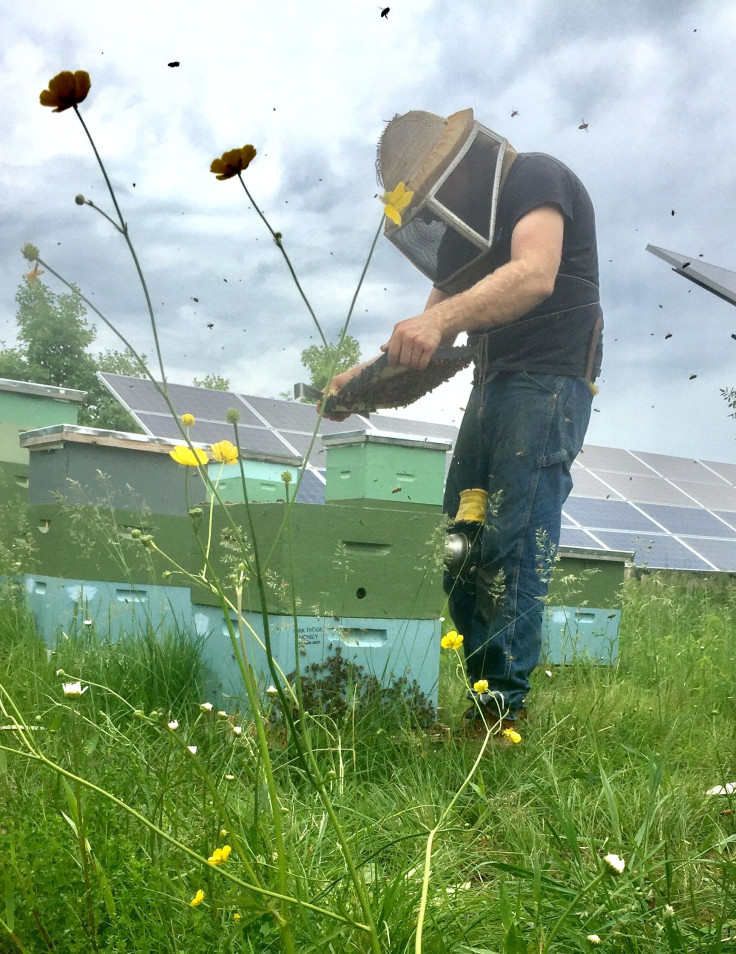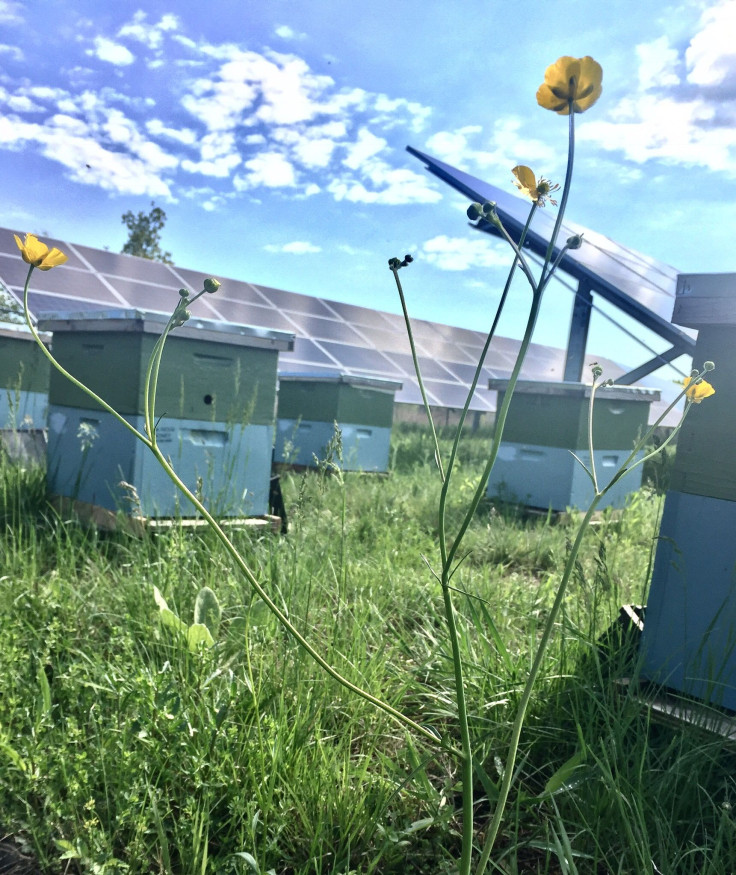National Pollinator Week: Why Are Bees Endangered And What Can You Do To Help

The U.S. Department of Agriculture designated June 19-25 as "National Pollinator Week" to remind Americans about the importance of keeping bees alive as worldwide populations decline.
More than one-third of all crop production nationwide requires insect pollination, according to the USDA. Honey Bees are the primary pollinators in the U.S., and add at least $15 billion a year by increasing yields and ensuring harvests.
However, bee colonies have been declining over the years worldwide. The number of bee hives in the U.S. alone has plunged from 6 million in the 1940s to about 2.5 million today. The global phenomenon is called Colony Collapse Disorder (CCD).
Read: End Of The World? Bees Are Dying Of Wing Disease
“They’re dying off, we really don’t know why,” Bill Tomaszewski, board president of the nonprofit Planet Bee Foundation, told International Business Times. “I don’t think it’s just one cause. When you bring them all together it kills hives.”
Why Are Beehives Dying Off?
Using pesticides, like neonicotinoids, can affect bees, Tomaszewski said. Those chemicals are systemic, which means the plants take the pesticide into its vascular system and spread it through all its tissues.
“When they pollinate flowers they collect pesticides and bring that back to the hive and get it into the wax that the bees produce,” said Tomaszewski. “Over time it weakens them.”
Global warming could also play a role, since it can affect plants bees go to for food. Bees don’t like super hot or cold temperatures.
Another risk to beehives are parasites, especially Varroa mite. The mites infect bees before they are adults, and when a hive is weakened, it can be completely wiped out by a mite infestation.
“It’s not too much the mites, it’s the viruses they carry,” said Tomaszewski. “They mutate so quickly and the bees can’t keep up.”
Monoculture also plays a part in the declining number of beehives. Farming in monoculture limits the bees’ diet to only one type of pollen for extended timeframes, causing malnutrition among the insects.
Tomaszewski stressed the importance of keeping bees alive.
“You have to honeybees. They’re really important to our ecosystem and food chain,” said Tomaszewski. “They’re the only insect that makes honey.”
Helping Bees With Solar Gardens
Travis and Chiara Bolton, a married couple that founded the beekeeping company Bolton Bees in Minnesota, teamed up with Connexus Energy to install 15 beehives at the company’s SolarWise garden in Ramsey, Minn. in April. The Boltons will manage and expand the beehives throughout the summer at what seems to be the first solar garden in the U.S. that will produce commercially available honey.
The solar gardens are planted with a biodiverse mix of low-growing and shade tolerant flowers and grasses. These solar arrays are pollinator-friendly because they’re different from others which are built on turfgrass or gravel. The solar gardens provide bees with food to help maintain good nutrition.
“A solar array is a very healthy location,” Chiara Bolton told International Business Times.

The Boltons started the company Solar Honey, which places apiaries for solar companies or subscribers. Solar Honey also certifies other solar pollinator friendly habitats. To get certified, the solar arrays have to meet a scorecard to see if its pollinator friendly. The apiary, which is a collection of beehives, must be on or adjacent to the solar array, and has to be in an area that is an acre or larger.
“Food for bees is nectar and pollen, so when you have these acreages of solar arrays intentionally for pollinators it helps,” Travis Bolton told IBTimes. “Nutrition can help with other issues.”
The Boltons will extract the honey from the solar locations in late July or early August. Fresh Energy, the nonprofit that first introduced the Boltons with Connexus Energy, said the “project is a shining example of what a solar site can and should be.”
“Connexus Energy’s bird-and pollinator-friendly solar array shows that solar sites can be designed and managed in ways that have numerous agricultural and environmental benefits,” said Fresh Energy’s Rob Davis.

How You Can Help Bees
You might not have the space to build a solar array with an apiary, but there are other ways you can help bees.
Tomaszewski says people can plant bee-friendly gardens, especially with purple flowers, like lavender and rosemary, since bees like that color. If you don’t have a garden or yard try planting in pots. You can also supporting local farmers, who plant flowers in their crop fields, and shop organic foods that don’t use pesticides.
“One person can have an effect, one person can make a difference,” said Tomaszewski.
© Copyright IBTimes 2024. All rights reserved.





















